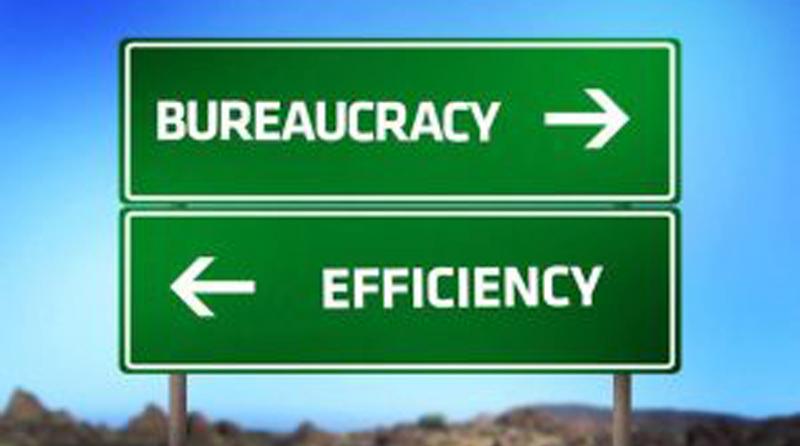
Key government officials on Friday shared their views on the current status of bureaucracy and how the changes should be introduced and what role the political leadership should play in order to drive and implement policy, and support economic growth in the country.
Sharing their views at the Sri Lanka Economic Summit 2018 organised by the Ceylon Chamber of Commerce, the several Ministry secretaries said, they believe there is a need to reinvent bureaucracy rather than energise it.
Excerpts;
Sri Lanka needs strong political will and the support of the bureaucracy to advance reforms agenda and speed up growth, said Dr. R H S Samaratunga - Secretary to the Treasury, Ministry of Finance and Mass Media. The poor state of the bureaucracy has become a serious problem than it is perceived to be in many countries in the region, he told the Sri Lanka Economic Summit 2018 on Friday.
He said that bureaucracy has to grapple everyday with a number issues and complexities and is required to go through a number of practices, laws and regulations to do something acceptable by all. He said further that on accountability front, the Government entities are managed by Parliamentary Committee on Public Accounts (COPA) and Parliamentary Committee on Public Enterprises (COPE). Accordingly, there are some 1,251 government entities that come under the purview of these two committees. He also said that the Government spends a massive amount of money every year to pay salaries and pensions of state sector employees and in 2017 alone , the Government has spent close to Rs 900 billion to this end. “Every Rs 100 we get, RS. 44 are spent on public employees,” he said. “Government is not a company. We are a rule based organisation and are accountable to Parliament and the general public. Therefore, when the Government gets large, bureaucracy gets enlarged every day. As a result, sometimes we find it to difficult to garner the real outcome of some of our activities.”He further said that the bureaucracy has to support the private sector to be the engine of the country’s growth.
Meanwhile, the Ministry of Development Strategies and International Trade is striving to become a more peoplecentric organisation promoting and strategising Sri Lanka’s global competitiveness in international trade and making Sri Lanka the most preferred investment destination in the region.
Chandanie Wijayawardhana - Secretary to the Ministry of Development Strategies and International Trade said that the newly formed ministry, however, is facing issues in terms of implementing new reforms and building confidence with citizens.
“We have somewhat created a brand for our ministry. But it has not earned a lot of good comments. There are both bad and good criticism. People are demanding certain things” she said. The main objective of the ministry is to implement reforms to fulfill the expectations of all walks of life, she added.
Sumith Abeysinghe - Secretary to the Cabinet, Office of the Cabinet of Ministers Sri Lanka said that bureaucracy has to convince the political masters to adopt a society friendly approach when it comes to implementing new reforms and development projects in the country.
“Both politicians and bureaucracy has one aim; that is to serve people. But the issue is that their approach is different. Bureaucracy is trying to execute their tasks in a fair and impartial manner. Contrary to that politicians want to get results immediately and the cost is not much of a concern for them,” he said.
He also said that civil servants are supposed be carrying out the mandates of politicians and politicians have the control over the bureaucracy as per the clauses of the constitution. Sunil Hettiarachchi - Secretary to the Ministry of Education said that the Government sector employees need to deliver public services in an efficient manner, keeping the focus on the outcome.
Stressing the need to reinvent bureaucracy rather than energising it, he said that the Government employees need to begin from the customer or the citizen and adopt a holistic approach to cater to the diverse requirements of citizens.
Delivery of service is the most important thing, he said adding that it is also essential to get the necessary infrastructure elements and basic conditions right to adopt a customercentric approach in delivering public services in a transparent and efficient manner in the country.
